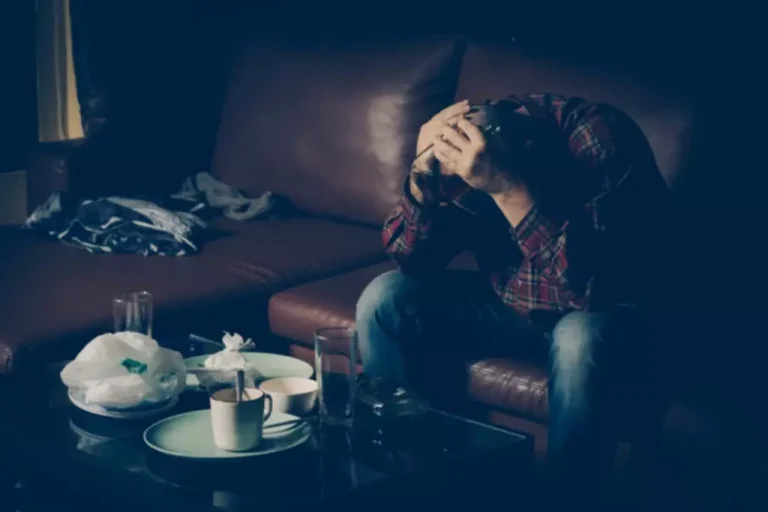
During the course of the coronavirus pandemic, our treatment center has continued to help New England residents access the life-changing care they need to continue forward in their recovery journey. House Mentors and staff lead and support each sober living home; helping to ensure a positive recovery environment for all guests. At the outset of Phase I, clients are evaluated for needs in the areas of housing, medical conditions, job prospects, and the like. A client may be referred to community programs and/or practitioners with affiliation agreements with Hope House.
How We Serve Residents Looking For Sober Housing In Massachusetts
All MASH-certified sober homes follow the National Alliance for Recovery Residences (NARR) standards and have been independently inspected. We expect our residents to be actively involved in an individual recovery plan. We facilitate in- house AA and NA meetings, and all residents are subject to supervised drug and alcohol testing. Sober homes screen guests for alcohol and drugs, enforce house rules and curfew, and each guest holds their brothers and sisters accountable. Sober homes offer an opportunity for men and women in recovery to live together and support each other while pursuing a new life in recovery. Within 60 days of their admission to Hope House, clients must be working or volunteering.

Providing clean, safe, comfortable space needed for individuals to succeed in their recovery.

Because of their Americans with Disabilities Act protection, sober home operators are not required to disclose their plans to open in a neighborhood to abutters. Nor do abutters have leverage to stop sober homes or any other group care homes serving populations considered “disabled” under federal law. But most sober homes in the state are not MASH-certified, and, city and state officials have no information on how many sober homes are operating in Boston or Massachusetts. Among the 175 homes certified by MASH, 23 homes, with a total of 300 beds, are located in Boston.
Located in Upham’s Corner in Dorchester.
Two blocks from Redd’s home, at 570 Warren Street, residents of a 56-unit facility have over the years angered abutters, littering the gated private green space in Elm Hill Park with dirty hypodermic needles. A block to the west of Redd’s home, a facility at the corner of Humboldt and Howland streets received fierce pushback from abutters when it sought zoning approval to expand the number of beds. We do not receive any commission or fee that is dependent upon which treatment provider a caller chooses.
- We are New England’s premier sober living provider, with homes across Massachusetts, Connecticut, Rhode Island, and Maine.
- Of the 3,557 narcotics-related ambulance transports to city hospitals last year, 29 percent were for people who list home addresses outside of Boston.
- A block to the west of Redd’s home, a facility at the corner of Humboldt and Howland streets received fierce pushback from abutters when it sought zoning approval to expand the number of beds.
- This refers to temporary housing within a designated community for newly sober individuals.
- Among the 175 homes certified by MASH, 23 homes, with a total of 300 beds, are located in Boston.
- During Phase III, each client works with their case manager to prepare for life after Hope House, including finalizing plans for long-term housing.
Faith House #4
Across the street from the Victorian single-family she’s called home for decades stands a 21-bed home for women recovering from addiction that’s run by Boston Sober Homes. Next door is an unregistered sober home for men, whose inhabitants sober house roxbury ma often smoke on the front porch and throw cigarette butts onto her property. Faith House #7 is an all male recovery house located in Dorchester, MA. Faith House #5 is an all male recovery house located in Roxbury, MA.
- Faith House #4 is an all male recovery house located in Roxbury, MA.
- Certified or uncertified, the sober homes have become a bone of contention in the Roxbury and Dorchester neighborhoods where most of the sober homes in Boston are located.
- These homes allow for independence while guided by a set of recovery-focused house rules, standards, and expectations.
- We motivate and encourage others to achieve long lasting, healthy sobriety.
- Faith House #5 is an all male recovery house located in Roxbury, MA.
- Upon arriving at a sober-living house from rehab or detox, a woman can expect a safe and supportive environment that promotes long-term sobriety.
Sober Living In Roxbury
Sober living houses, also called sober homes and sober living environments, are facilities that provide safe housing and supportive, structured living conditions for people exiting drug rehabilitation programs. Sober houses serve as a transitional environment between such programs and mainstream society. Sober houses, also called recovery homes or sober living homes, provide housing for men and women in recovery from addiction. Sober houses often serve as a bridge between treatment and independent living and offer affordable rents and a supportive environment for those in recovery from substance abuse.
Sober living home information is provided by sober house operators. We try to provide current information but cannot monitor every recovery home listing and do not guarantee the accuracy of listings. Sober House Directory is a helpful starting place to find a recovery home and includes listings for sober houses, recovery residences, structured group homes, and other sober living for men and women in recovery.
More Options to Get In To Transitional Housing
- Our “family” way of life will provide a safe and clean environment that is ideal for continuing long-term recovery.
- We serve residents of the Greater New England area, including individuals across the state of Massachusetts and those traveling from surrounding states for professional behavioral health care.
- Our team will guide you in developing healthy habits, setting goals, and addressing any challenges that may arise during the recovery process.
- Independent living is difficult, and sober housing offers an attractive alternative to many options available to men and women in early recovery.
- Transitional housing is temporary housing for the working homeless population and is set up to transition their residents to permanent housing.

